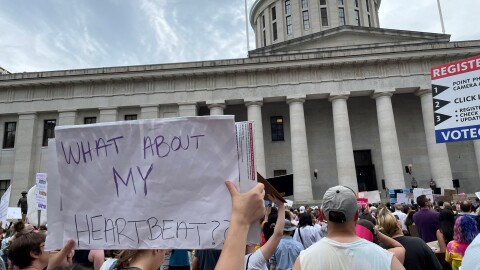UPDATED JULY 1, 2022 AT 2:42 PM EST.
An emergency stay of Ohio's newly imposed state ban on abortions at the first detectable “fetal heartbeat” was rejected Friday by the state Supreme Court.
At issue was a request by the ACLU of Ohio and Planned Parenthood Federation of America for the interim delay while the court reviews the question of whether the ban should be overturned. The providers argue the law violates the Ohio Constitution’s broad protections of individual liberty.
Their lawsuit followed the imposition of the Ohio ban on June 24, the same day the U.S. Supreme Court found the U.S. Constitution does not protect a woman’s right to an abortion. A federal judge lifted his stay on Ohio’s abortion restriction later that night.
Ohio Right to Life President Michael Gonidakis applauds the decision. "The Ohio Supreme Court got it right. What the abortion proponents attempted to do could not be done legally. The good news is that the Heartbeat law will remain in effect and save countless lives today and moving forward," said Gonidakis. "Instead of filing frivolous motions, the abortion industry should consider working with Ohio Right to Life to help women and save unborn children in the great state of Ohio."
On Twitter, the ACLU of Ohio said, "This is an incredibly horrible situation and we are deeply disturbed by the Ohio Supreme Court’s decision to allow the draconian six-week ban to remain in effect as it considers the merits of our case."
The Ohio law prohibits abortions after what it terms a “fetal heartbeat” can be detected, which can be as early as six weeks’ gestation, or before many women know they are pregnant. It makes exceptions for the life of the mother and certain severe health risks.
The office of Attorney General Dave Yost, defending the new law, opposed the emergency stay, saying the Ohio Constitution does not recognize the right to an abortion.



